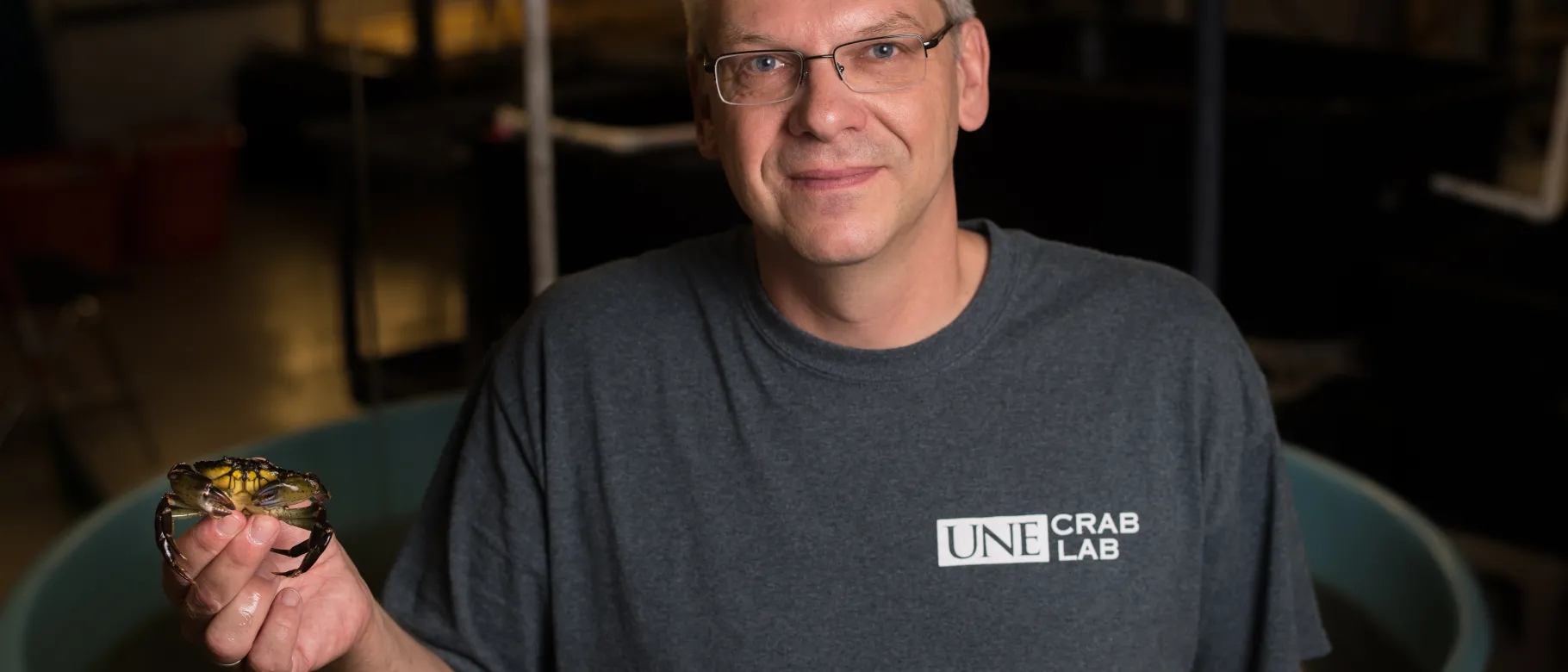UNE among institutions to receive $20 million grant to study Maine's coastal ecosystem

Researchers and students at the University of New England will join scientists and institutions across the state in a five-year initiative to study Maine’s coastal ecosystem and how its impacted by a changing ocean.
The project, funded with a $20 million grant from the National Science Foundation, aims to revolutionize environmental monitoring, ecological understanding and sustainability of coastal ecosystems.
The University of Maine is leading the project and partnering with Bigelow Laboratory for Ocean Sciences, The University of Southern Maine, The University of Maine Machias, Colby College, The Gulf of Maine Research Institute, Maine Maritime Academy, Southern Maine Community College and The University of New England.
More than 25 researchers, along with collaborators in the fields of education, government, economic development and marine-related businesses statewide will participate.
The project involves monitoring aquatic life in coastal waters through the use of environmental DNA, or eDNA.
Markus Frederich, Ph.D., professor of Marine Sciences in UNE’s School of Marine Programs, will develop methods to use eDNA tools to detect and monitor invasive marine species.
Frederich and his students have been studying invasive species for several years, including green crabs, which cause significant damage to the environment.
“Involving our students in a collaborative project that utilizies cutting edge technology exposes them to tackling real-world problems,” Frederich explained. “Education does not get better than this.”
Frederich’s work on the project will involve a graduate student and several undergraduate students.
“This is a truly exciting opportunity for both our students and our faculty,” commented Charles Tilburg, Ph.D., director of the School of Marine Programs. “Markus Frederich’s lab is a leader in investigating invasive species in this region. I look forward to the partnerships that this project will foster, the experiences for our students and the new and exciting results from the science.”
Envirornmental DNA (eDNA) is like a genetic fingerprint of a marine ecosystem. Organisms leave traces of DNA wherever they go. These traces can be collected, identified and linked back to those species. The resulting data can show where, when and how species and groups of organisms interact with each other and their coastal habitats.
Collected eDNA can be combined into larger and more comprehensive data sets that can help scientists answer ever-evolving questions about how coastal systems work and what makes them resillient or susceptable to change.